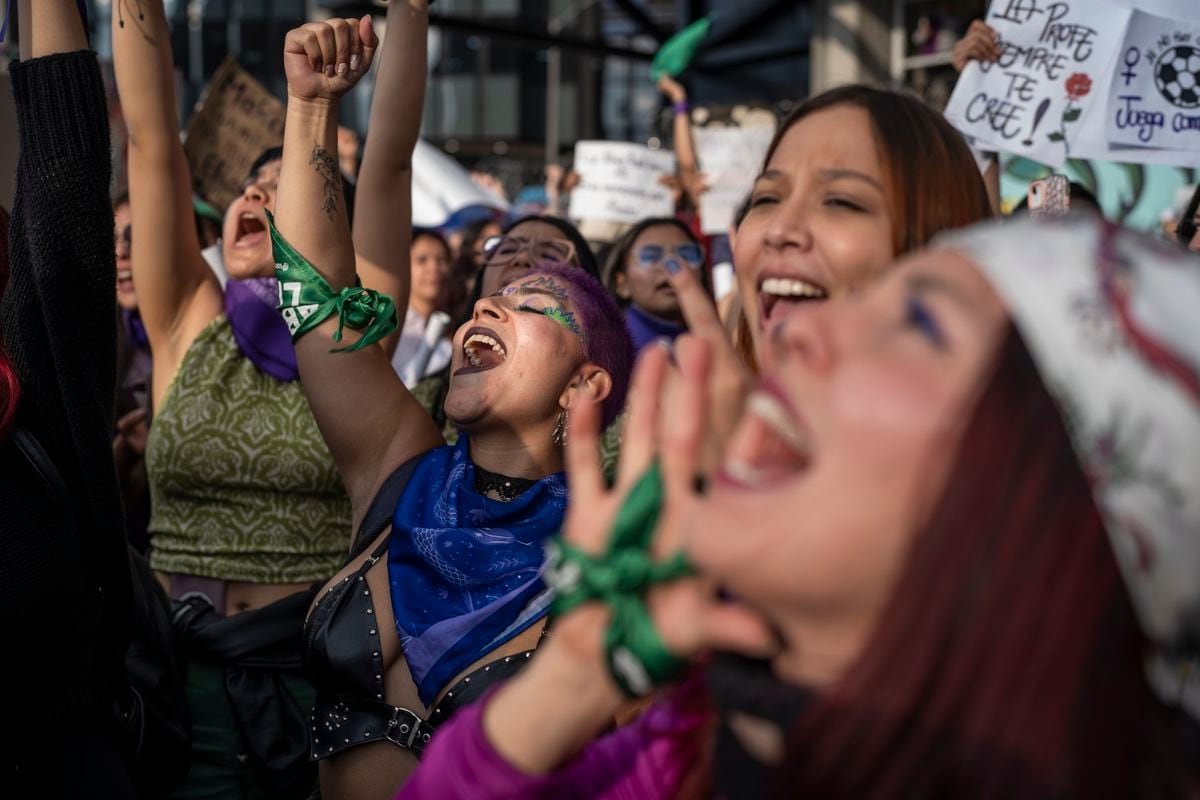Latin America and the Caribbean is one of the most unequal regions in the world.
In recent years, the public conversation has revolved around adjusting thinking to address these differences for prosperous development.
One of the historical struggles, despite recording progress in recent decades, is that of the gender gap.
According to figures from the World Bank, there are 655 million people in Latin America and the Caribbean, of which 332 million are women.
If we consider women of working age (between 15 and 64 years), 58% are economically active, which means that around 29% of the total population from Mexico to Argentina are women with paid employment.
In contrast, men in the region number more than 322 million (49.3% of the population).
82% of them are economically active from 15 to 64 years of age, which represents 40.4% of the total.
First class teacher at El Renacimiento school, in Villa Nueva, Guatemala.
Photo: World Bank
This difference between 29% of women who have a job and 40.4% of men is a clear example of the gender gap and is a pattern that is reproduced in different countries in Latin America and the world.
Some governments have already initiated reforms to their constitutions to reduce these differences, but much work remains to be done.
The region reveals these differences even more due to the disadvantages that exist compared to more developed countries in extreme situations such as the Covid-19 pandemic, where women were more affected than men.
By mid-2021, the median job decline was 3.2 times greater for women.
In addition, there was a greater increase in the time they devoted to housework, child care and educational support compared to men.
A report based on High Frequency Telephone Surveys for Latin America and the Caribbean (HFPS) revealed that 54% of women between the ages of 26 and 35 faced mental health problems in the pandemic compared to 41%. Men's.
This, coupled with the war between Russia and Ukraine, threatens their advancement in the labor market, also affecting their mental health.
Focused projects
Being a very complex region, Latin America and the Caribbean also has a different approach in each country to deal with its problems and it is necessary to carry out specific studies to present focused solutions.
The World Bank raises in its reports obstacles related to the labor disadvantages that women in the region have to propose tools that give strength, helping them to face inequalities.
One way to improve long-term job opportunities is by promoting participation in STEM careers (acronym in English for studies in science, technology, engineering, mathematics and computer science), where an average of 11% of women in the region have graduated. graduate in this discipline, according to the report Attracting More Young Women to STEM Fields.
Installation of pulmonary ventilators in Paraguay.
Photo: World Bank
Examples like Mexico, with the "Women in STEM" program that advises young women in secondary schools to increase their interest in science and engineering, or Brazil, which trained teachers and directors to build a scientific identity for women. girls and eliminated gender stereotypes in learning, are essential to motivate students to achieve their goals and highlight their abilities.
On the other hand, security is also a key element in the performance of women, not only in their work, but also in how they function socially.
The region faces high rates of violence against women and it has economic repercussions.
In Chile, domestic violence resulted in 2.42 billion dollars (mdd) in lost wages in 2020. In Nicaragua it was 45.8 mdd.
Woman working in a potato cooperative in Honduras.
Photo: World Bank
In Latin America and the Caribbean, the World Bank supports policies, interventions and prevention activities on gender violence, exploitation, harassment and sexual abuse in all its projects, helping federal governments to understand the risks presented by women, analyzing public investments and reviewing state budgets to uncover existing gender deficiencies.
These projects continue to add efforts for a region of equals.
Many countries in Latin America and the Caribbean are already confronting the problem and are beginning to confront it, but immediate measures are still required to ensure a more inclusive future.
The research and figures that demonstrate the gender scorecards are a crucial guide to implement policies based on focused studies and results that can contribute to an equitable society for a more resilient economy.



/cloudfront-eu-central-1.images.arcpublishing.com/prisa/6YOQKRNM2VFEDJ77EV4BG7TTOQ.JPG)

/cloudfront-eu-central-1.images.arcpublishing.com/prisa/EMYXC3EVHNEG3OJHGIQCB2IVYA.jpg)

/cloudfront-eu-central-1.images.arcpublishing.com/prisa/NYBERFPPHVEJVER4FIRIEAGGX4.jpg)
/cloudfront-eu-central-1.images.arcpublishing.com/prisa/Q6UJ4IEP6ZGLZLS3MSHF7LNYOU.jpg)
/cloudfront-eu-central-1.images.arcpublishing.com/prisa/ETGSMPG4ZNFJFFLVSLKB3DWPSQ.jpg)